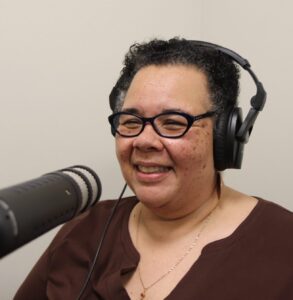
Too Tired to Teach? Consider Contemplation
Unprecedented. The current communal struggle to live through the viral pandemic is often called – unprecedented. In choosing to use this word, we are not so much trying to communicate that this moment of prolonged upheaval has never before happened. Historians routinely remind us that viral pandemics are part of United States history (e.g., Spanish flu pandemic, 1918). By using the word “unprecedented” we are trying to communicate, through our fear and uncertainty, that our experiences from before, our knowledge from before, our underpinnings from before are inadequate to inform us here and now. What is unprecedented is our lack of knowledge and our inability to make meaning. We can no longer make certainty stick. Decisions are reduced to flimsy guesses, uninformed hunches, or heartfelt wishes. This urgent time is unprecedented because our language fails to communicate this gargantuan experience of ambiguity, liminality, communal grief and loss. We say unprecedented because we are afraid. In other words, “…. when the crisis is upon us and the ‘ordinary’ collapses, life gets complicated very quickly.” (Barbara Holmes, 2021) The current complications have left us stymied. How do scholars teach when the ordinary has ceased? How do we teach when we are plunged into a space of unknowing?
The vantage point of the Wabash Center allows my staff and me to dialogue with a wide swath of colleagues across the United States, Canada and Puerto Rico. From multiple sources, we are being told that colleagues are exemplifying the behaviors of exhaustion which more typically occur during the last portion of the semester. We are in the first weeks of the semester – we are just getting started, yet we are teaching tired. What does it mean that the faculty is fatigued in the first quarter? How do you make it to the end of the semester? What happens when those tasked with meaning making come up short?
Education is a matrix of traditions, routines, habits and schedules. Our syllabi lean into the teaching arc; we begin the semester, then we look to mid-term, then finals bring the eager closure. Typically, by week 3 or 4 of the semester, colleagues are realizing the weaknesses in their syllabus design and becoming aware of the students’ capacity to manage the course. In the past, and given the semester arc, it is in these early weeks when adjustments are made, adaptations and corrections are formulated. Good teaching makes course corrections along the way. Good teaching adjusts to the students in the conversation. Good teaching is flexible, responsive, nimble. However, this semester, we are getting the message that colleagues are too tired to adjust, too weary to listen for their students. Colleagues are reporting that the distraction of the viral pandemic is keeping them from noticing their students; keeping them from being fully present in the classroom. Colleagues are looking for the finish line and the semester is barely underway. What does it mean to teach during long-term crisis? How do you stay healthy when the crisis stretches out into years? What does it mean if your personal tiredness negatively impacts your teaching?
Fatigue is a symptom of anxiety, prolonged uncertainty, and sorrow. Faculty communities cannot ignore, nor take for granted, the wellbeing of its members. Even if your institution has a mobilized response to the pandemic, the emotional and spiritual effects upon individuals and communities cannot go unattended. We must notice the hardship and toll placed upon our colleagues during this academic year and design new measures of faculty care. We need faculty wellness strategies and practices which heal crisis fatigue. In this urgent time, contemplation might be a communal practice to employ.
Barbara Holmes’ latest book entitled Crisis Contemplation: Healing the Wounded Village provides insight, guidance, and wisdom for our not knowing and tiredness. Dr. Holmes writes on page 57:
As it turns out, contemplation that arises from a crisis or collective trauma is a displacement of everyday life and a freefall into ‘what comes next.’ As the crisis sweeps away our former life together, our arrogance and fantasies, all we can do is reflect on the memories of another and more tranquil existence, and accustom ourselves to a new and welcoming darkness. The darkness to which I refer is not a space of fear. It is an involuntary centering in a reality that is not always available to use when our egos are lit. Crises open portals of a deeper knowing. When the crisis occurs, the only way out is through, so we take a cue from nature and relax into the stillness, depending upon one another and the breath of life!”
The only way out of this crisis is through this crisis – together. Learning to accustom ourselves to a new and welcoming darkness requires intention. Stepping into the portals of a deeper knowing takes courage. Dr. Holmes instructs us that rising to this occasion might mean doing less. This might be a time for introspection, stillness, silence, mindfulness, contemplation. Rest! Take time out and off! Do less! In this crisis time, let us slow down.
Leave a Reply